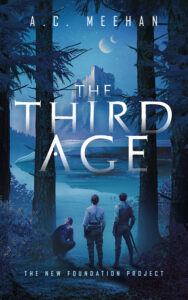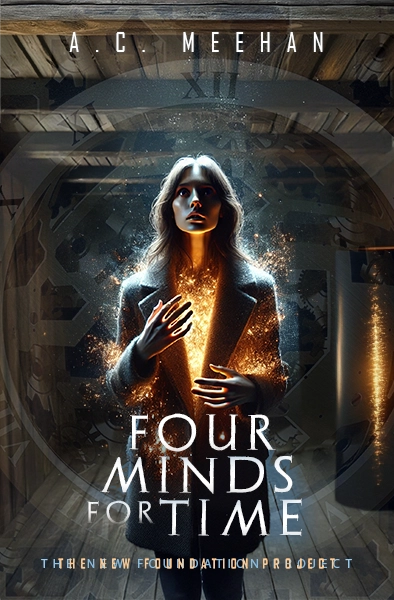Last week, a couple of early readers provided feedback on my current work in progress, the sequel to A Signal for Redemption. They had excellent questions and thought-provoking comments, and now I am revising my draft with new perspective. The “first read” is a fascinating process, and it’s an electrifying step in the creative journey.
It’s also nerve-racking. Exposing the work to judgment is uncomfortable—did I write it well, and did I tell a satisfying story? It’s a combination of waiting for a report card and watching someone open a gift that you hope is exactly what they want. Maybe that gets easier with practice and confidence, though I suspect there will always be a bit of squirming.
There’s another dynamic at play, though, and it’s the one that makes this first feedback so incredible.
Alone in the House
For months, I’ve been immersed in a world that exists only in my mind. I’ve spent day after day in the company of imaginary people—characters who are so real to me that I can hear their voices in my head. It’s a rich and powerful experience, and profoundly emotional and deeply personal.
I’ve said before that the characters “take over” and they seem to choose what they will or won’t do. You’d think figments of one’s imagination would submit to conscious control, but the creativity comes from so deep inside that I (like so many others!) often feel like I am only channeling something from beyond. The story I’ve told, the images I’ve conjured, the words I’ve used, all come from this part of me that I don’t entirely understand or control. Logically, there’s no aspect of the work that doesn’t contain something of me, whether it’s a discernible element of my personality or worldview or something I didn’t even know was there. I certainly hope I don’t share my villains’ proclivities, but the choice of what malevolence to bring into the story must signify something.
Inviting the Guests
Giving the work to others to read means ushering them through the door marked “Residents Only.” Here is my world. Here are my thoughts. Here are my emotions and my visions. Please, look around and make yourself at home. Readers, having been invited in, are then left to explore on their own. It’s like a houseguest who not only inspects the books on the shelf but opens the cabinets and drawers. Even the kitchen junk drawer. I expect readers to find what I left in plain sight, but they will also uncover things I didn’t know I had. Different readers look in different places and find different things. Sometimes they don’t find the thing I thought they’d trip over. Sometimes they find mysterious things I can’t explain.
Early readers are critically important for that very reason. I need to know what they found lying around, before the book is published. Their feedback is a true gift. It’s amazing when someone reads a work I thought I knew inside out and finds some theme or issue I’ve overlooked. Then I have the chance to consider and adjust, and it makes a better book. That’s the practical wonder of the first read.
The Party
There’s a second wonder, and this is the magic of reading. The things that existed only in my mind now also exist for someone else. Suddenly my characters have a life beyond me. It’s like finding out that someone you just met also knows your best friend or your aunt. I always hope readers will love the characters I love, but in a way, I suppose what’s more important is that they are reacting to a character who feels real.
Every reader experiences the book differently, because they are co-creating, bringing their own ideas and feelings into the story. (Which is why rereading something decades later changes everything…) What the reader finds in a book is at least as important as what the writer intended. Beyond Beta readers, critique partners, and thoughtful reviewers, authors don’t usually get to know how readers experience their books, or what ideas or images resonate.
As a lifelong reader, I’ve entered the worlds of other minds over and over, and it’s made my life richer. It probably seems like posturing, but I really do feel honored to be part of that from the writer’s side. Now that this current work has been processed by other minds, it feels a lot more real. I’ve got a much better sense of what I’ve wrought. And I’m a giant step closer to throwing the doors wide open.




